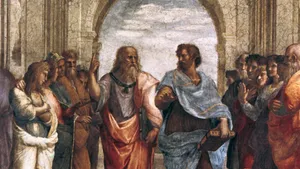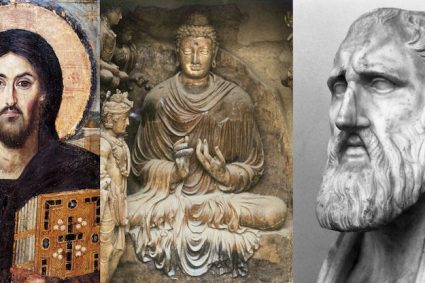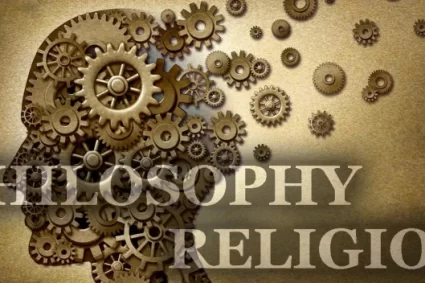

The Enlightenment, spanning the 17th and 18th centuries, marked a transformative era in Western intellectual history. Enlightenment thinkers, driven by a commitment to reason, science, and human progress, challenged established authority, paving the way for profound shifts in political, social, and philosophical thought.
Reason as the Guiding Light:
- Rationalism: Enlightenment philosophers championed reason as the primary source of knowledge and the key to understanding the natural world. René Descartes, a foundational figure, famously declared, “Cogito, ergo sum” (I think, therefore I am), emphasizing the centrality of individual reason.
- Empiricism: Concurrently, empiricists like John Locke argued that knowledge is derived from sensory experience. Locke’s ideas on tabula rasa (the blank slate of the mind) and natural rights influenced subsequent discussions on individual liberty.
Political Philosophy and Social Contract:
- Thomas Hobbes: In “Leviathan,” Hobbes proposed a social contract theory, asserting that individuals willingly surrender certain rights to a sovereign authority in exchange for protection and social order.
- John Locke: Locke’s “Two Treatises of Government” emphasized natural rights, including life, liberty, and property. He argued that governments derive their legitimacy from the consent of the governed and can be overthrown if they fail to protect citizens’ rights.
- Montesquieu: In “The Spirit of the Laws,” Montesquieu explored the separation of powers within government—a concept later embraced by the framers of the United States Constitution.
Philosophy of Freedom and Tolerance:
- Voltaire: A fierce advocate for religious tolerance and freedom of speech, Voltaire used satire and wit to criticize oppressive institutions. His famous phrase encapsulates his stance: “I disapprove of what you say, but I will defend to the death your right to say it.”
- Jean-Jacques Rousseau: Rousseau’s “The Social Contract” posited the idea of the general will, suggesting that a just society arises when individuals collectively participate in decision-making for the common good.
Scientific Revolution and Progress:
- Isaac Newton: Newton’s laws of motion and universal gravitation exemplified the scientific revolution’s emphasis on empirical inquiry and mathematical precision, inspiring Enlightenment thinkers to apply similar methods to the social sciences.
- Encyclopedists: Denis Diderot and Jean le Rond d’Alembert spearheaded the creation of the Encyclopédie, a comprehensive compilation of knowledge aimed at disseminating Enlightenment ideals and fostering critical thinking.
Enlightened Despotism:
- Frederick the Great and Catherine the Great: Certain rulers embraced Enlightenment ideas while maintaining absolute power. Frederick the Great of Prussia and Catherine the Great of Russia implemented reforms in areas such as education, law, and administration.
Legacy and Impact:
- Influence on Revolutions: Enlightenment ideas laid the intellectual groundwork for political revolutions, including the American Revolution and the French Revolution, as they challenged the divine right of kings and promoted principles of equality and popular sovereignty.
- Human Rights and Liberal Democracy: Enlightenment philosophy significantly contributed to the development of modern concepts of human rights, individual freedoms, and the establishment of liberal democratic institutions.
- Critique and Challenges: While the Enlightenment brought about significant progress, it also faced critiques. Some argued that it perpetuated Eurocentrism and failed to address systemic issues such as slavery and gender inequality.
Conclusion: Illuminating Paths to Modernity:
Enlightenment philosophy, with its emphasis on reason, liberty, and progress, ignited a transformative intellectual movement that reverberates through the corridors of history. The pursuit of knowledge, the critique of authority, and the advocacy for human rights continue to shape contemporary societies, reflecting the enduring legacy of the Enlightenment thinkers who dared to illuminate the path to a more enlightened and just world.






